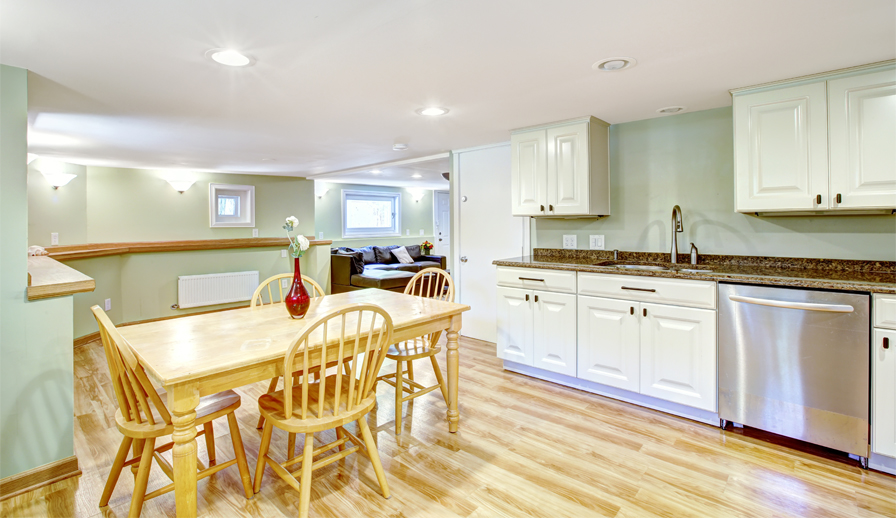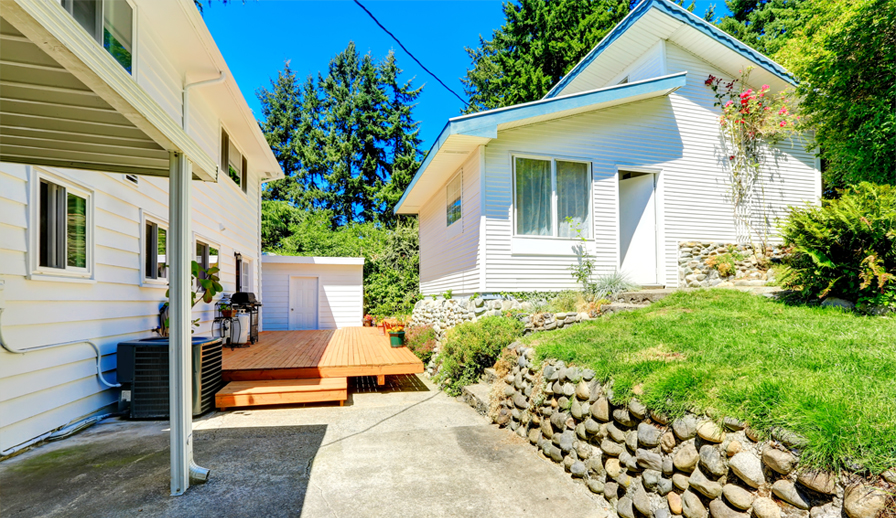Canadians are increasingly looking at scenarios where multiple generations are living under the same roof. The latest census shows that 986,400 Canadian households had more than one generation or multiple families living together in 2021. That’s a 45% increase from 20 years ago.
In a multigenerational household the objective might be saving money or caring for aging parents. Seniors are living longer and many prefer to age in place. There might be cultural factors at play, as well, or just a desire to tighten family bonds.
What’s changing to inspire an increase in multigenerational living?
For 2023 and subsequent tax years, the Canadian government has introduced a Multigenerational Home Renovation Tax Credit, which is meant to assist with the cost of renovating an eligible home to add in a secondary unit. They define an eligible secondary unit as a self-contained housing unit with a private entrance, kitchen, bathroom and sleeping area.
In February 2022, Toronto city council expanded permissions to allow residents to build garden suites on residential properties.

“It’s not the majority of the homes I sell but I have an increase there,” says Jacqui Rostek Holder, a REALTOR® and associate broker with Royal LePage Atlantic in Halifax. “I see it becoming more commonplace. In some cases one party (either the parents or the child’s family) is in a worse financial position so they are being helped out.”
Rostek-Holder says she’s even had scenarios where buyers purchase with their parents knowing they’ll be living with them in the future.
Katherine Minovski, a broker at Royal LePage based in Unionville, Ontario, says she currently has three families looking for this kind of housing. There’s a younger couple in their 40s, with two children, along with the client’s brother under one roof. Another couple in their 60s are living with their kids, who are in their 30s, plus a nephew and wife living with them until they can find their own home. There’s also a couple in their 60s living with their 80-year-old mother, with the father living in a seniors residence. She also knows of a couple in their 30s living with their friends, with each pair having a young child under five.
Dexter Wilkie, a REALTOR® and salesperson with Royal LePage Atlantic in Halifax, says families often come together to pool their funds so the younger generation can realize the dream of owning a home. Sometimes parents who are retiring and wanting to travel don’t want to remain the sole owners of a residence.
Advice from REALTORS® on finding homes for multigenerational living
There’s a lot a REALTOR® can do to help these kinds of buyers, factoring in budgets for complex parties and recognizing opportunity in homes that don’t come equipped with in-law suites. Minovski says she helps buyers zero in on homes with walk-out basements or townhomes with elevators.
“The walkouts or separate side entrances are a hot item now,” she adds. “We’re looking for bungalows or bungalofts, even something with a separate garage with a loft, or a laneway with the potential to build another structure.”
“Look for bright, clean spaces, taller ceilings, larger hot-water tanks to fulfill the water usage with more people living there, and the space to create an additional floor for living space. If the shell is there, and there’s not too much to either add a kitchen or bathroom, I show them that. Also parking is a big one now. I also make sure the municipality allows for the residence to be able to adapt into a multigenerational residential dwelling.”

Holder points to easy accessibility to critical areas like laundry rooms, especially for aging parents and those with mobility issues.
“Many styles of homes can work although not all are as ideal as others,” she says. “I listen to the client’s needs. If they are constrained by budget, I try to provide options to help achieve their goal. It’s easy to communicate the vision when it’s showing them how I am helping them get what they want out of the property.”
For Michael Dewing, a REALTOR® and sales representative with RE/MAX of Lloydminster in Alberta, his market has little to no legal suites or in-law suites. He helps these kinds of buyers search for homes that have two master bedrooms each with their own ensuite bathrooms, or separate living spaces such as an extra wing or hallway in the home, making some spaces a little more private than others.
Wilkie says coming into real estate with an interior design background has given him a big advantage when it comes to serving multigenerational needs.
“It’s fun to bounce design ideas off of clients to see how the home needs to work for them,” he says. “Keeping budgets in mind, I’m offering solutions based on knowing the costs to complete any modifications. I will walk them through the changes and how they could configure the space.
“In some cases I have even gone as far as taping out a floor plan on the floor so they can get the feel of how the space would feel when it comes time to build out or modify.”
Digging down and lowering the basement (underpinning) can also create a functional basement that provides more living space, says Alexandru Bejinariu, a broker in Toronto with RE/MAX Regal Homes.
“Important markers are zoning allowances over height, in-law suites and laneway housing,” he says. “These regulations paired with the right property can produce a fine multigenerational property.”
For Bejinariu, modifications for multigenerational living can add value to the property by providing extra living space; and when renovation costs are shared among more people, they become more economical.
Where REALTORS® can really help buyers is by identifying the potential in a home for this kind of living situation. Knowing what’s possible based on construction or bylaw constraints, and recognizing home features that allow for conversion to suit multigenerational households adds value for clients.





